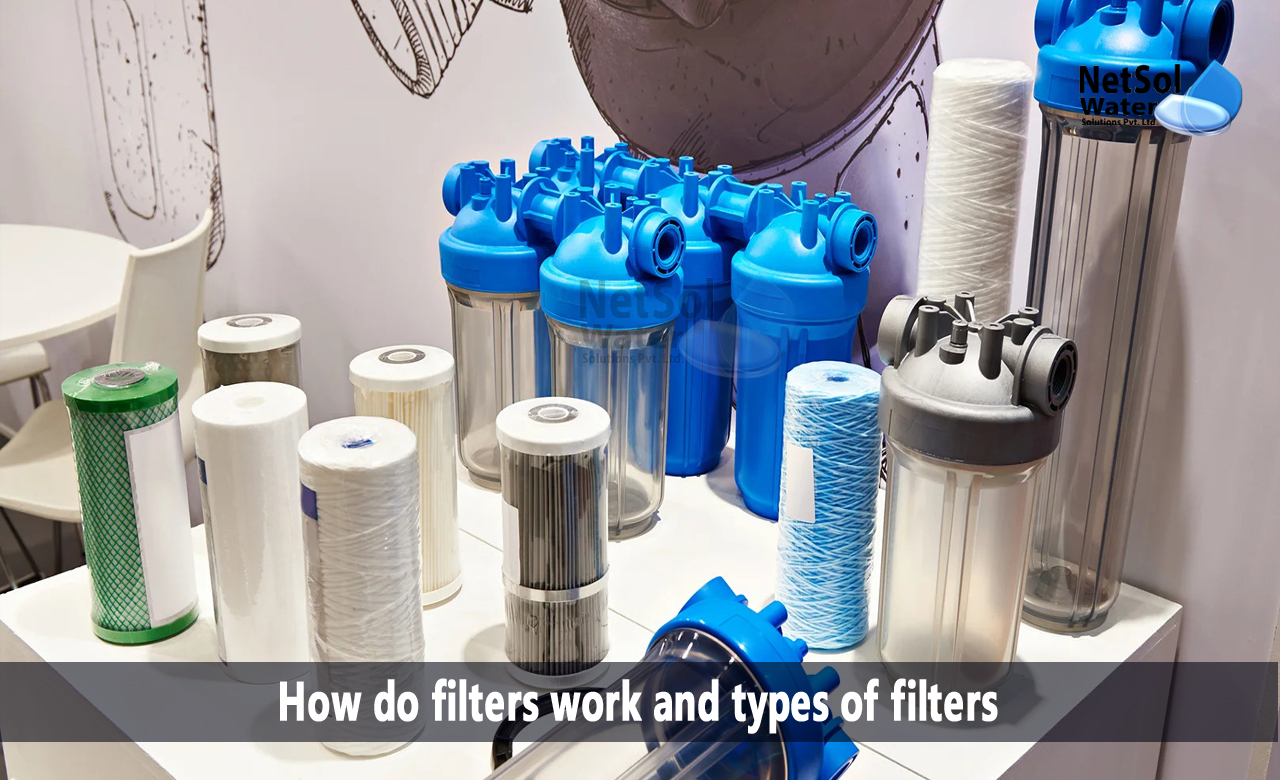Healthcare facilities such as hospitals are becoming more mindful of the risks posed by waterborne microorganisms, which may be present in the artificial plumbing systems. Point-of-use (POU) filtration is becoming more widely employed in the healthcare industry, to help reduce the number of germs present in water due to increased concerns about preventing illnesses.
How do filters work and types of filters?
But not? all filters are made equal, thus it's critical to comprehend the fundamentals of microbiological filtration and their working.
Working of activated carbon
Municipal facilities typically use ordinary commercial carbon filters to taste and odour-filter their water. The most prevalent element in ordinary filters is carbon, which satisfies most industrial standards for removing volatile organic pollutants (VOCs), and other compounds that are frequently present in water. The higher surface area of carbon contributes greatly to its efficiency.
The principal mechanism by which carbon will remove a specific chemical is physical adsorption. Intermolecular forces pull molecules into the millions of holes and pockets on the surface of activated carbon, as water comes into contact with the material.
Chlorine is successfully removed from water when it interacts with carbon, forming chloride ions as a result of the reaction between the two molecules. The cost of removing chlorine from water to improve taste and odour is that the water is left untreated, and is now more prone to bacterial growth. Since, they cannot get rid of tiny particles like waterborne pathogens, carbon filters are not regarded as microbiological filters.
Inside design
Different kinds of membranes are used in filters to trap water particles that would otherwise pass through. Surface and hollow fibre filters are the two most popular types used.
Hollow Fiber: These are the collection of small, coiled tubes resembling straws. Each tiny tube contains thousands or perhaps millions of artificial pores (or holes), of a certain size. The dimensions of these pores prevent particles from passing through the walls, of the hollow-fiber tubes.
Surface: To produce layers that will serve as a filtration area, sheets of filter material are pleated together. Water particles will accumulate at the surface and become stuck, allowing clean water to pass through.
Both filter types have performed remarkably well at eliminating particles that are frequently present in water.
Portion Size
Numerous thousands to millions of small pores in filter membranes prevent particles from passing through. Unfiltered tap water can include a huge number of particles that are invisible to the human eye. When defining pore diameters, the terms nanometre and micrometre are interchangeable, however, normally sizes are expressed in "microns".
Smaller particles, such as some aquatic pathogens, may be five times smaller than permissible limit (e.g., Legionella 0.3 microns). Because of this, most commercially available microbiological filters have particle diameters that start at 0.2 microns. Water particulates can still slip through even at that size. No matter what kind of media is employed, how well it can filter even the smallest particles will affect how effective it is.
What will happen to the filters?
Depending on their health, everyone has the potential to become sensitive to waterborne pathogens, prevalent in water systems at some point. However, people who have impaired immune systems are more vulnerable, including young children, the elderly, smokers, people with chronic illnesses, and people undergoing immunosuppressive treatments.
Numerous safety measures are currently in place to guard against healthcare-associated infections, in these at-risk patients. There should be no difference in the water that these patients can contact. Therefore, customers having problems with their residential and non-domestic water systems can turn to the Netsol Water Solutions’ team for assistance.
Water treatment plant manufacturer and supplier
Netsol Water develops and produces water treatment plants and wastewater treatment plants, which are highly successful at lowering water contaminants. Additionally, it requires less work for installation and upkeep. As one of the top manufacturers of water treatment plants situated in India, we offer our products to customers at rates that are as low as possible.
Netsol Water is Greater Noida-based leading water & wastewater treatment plant manufacturer. We are industry's most demanding company based on client review and work quality. We are known as best commercial RO plant manufacturers, industrial RO plant manufacturer, sewage treatment plant manufacturer, Water Softener Plant Manufacturers and effluent treatment plant manufacturers. Apart from this 24x7 customer support is our USP. Call on +91-9650608473, or write us at enquiry@netsolwater.com for any support, inquiry or product-purchase related query.



